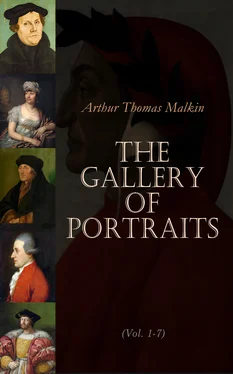Turenne’s signal services were appreciated and rewarded by the entire confidence both of the regency, and of Louis himself, after he attained his majority and took the reins of state into his own hands. At the King’s marriage, in 1660, he was created Marshal-General of the French armies, with the significant words, “Il ne tient qu’a vous que ce soit davantage.” The monarch is supposed to have meditated the revival of the high dignity of Constable of France, which could not be held by a Protestant. If this were so, it was a tempting bribe; but it failed. Covetousness was no part of Turenne’s character; and for ambition, his calm and strong mind could not but see that a dignity won by such unworthy means would not elevate him in men’s eyes. We would willingly attribute his conduct to a higher principle; but there is reason to believe that henceforth he rather sought to be converted from the strict tenets of Calvinism in which he had been brought up. It is at least certain, from his correspondence, that about this time he applied himself to theological studies, with which an imperfect education, and a life spent in camps, had little familiarized him; and that in the year 1668 he solemnly renounced the Protestant church. However, he asked and received nothing for himself, and was refused one trifling favour which he requested for his nephew: and perhaps the most fair and probable explanation of his conversion is, that his profession of Calvinism had been habitual and nominal, not founded upon inquiry and conviction; and that in becoming a convert to Catholicism, he had little to give up, while his mind was strongly biassed in favour of the fashionable and established creed.
When war broke out afresh between France and Spain, in 1667, Louis XIV. made his first campaign under Turenne’s guidance, and gained possession of nearly the whole of Flanders. In 1672, when Louis resolved to undertake in person the conquest of Holland, he again placed the command, under himself, in Turenne’s hands, and disgraced several marshals who refused to receive orders from the Viscount, considering themselves his equals in military rank. How Le Grand Monarque forced the passage of the Rhine when there was no army to oppose him, and conquered city after city, till he was stopped by inundations, under the walls of Amsterdam, has been said and sung by his flatterers; and need not be repeated here. But after the King had left the army, when the Princes of Germany came to the assistance of Holland, and her affairs took a more favourable turn under the able guidance of the Prince of Orange, a wider field was offered for the display of Turenne’s talents. In the campaign of 1673 he drove the Elector of Brandenburg, who had come to the assistance of the Dutch, back to Berlin, and compelled him to negotiate for peace. In the same year he was opposed, for the first time, to the Imperial General Montecuculi, celebrated for his military writings, as well as for his exploits in the field. The meeting of these two great generals produced no decisive results.
Turenne returned to Paris in the winter, and was received with the most flattering marks of favour. On the approach of spring, he was sent back to take command of the French army in Alsace, which, amounting to no more than ten thousand men, was pressed by a powerful confederation of the troops of the empire, and those of Brandenburg, once again in the field. Turenne set himself to beat the allies in detail, before they could form a junction. He passed the Rhine, marched forty French leagues in four days, and came up with the Imperialists, under the Duke of Lorraine, at Sintzheim. They occupied a strong position, their wings resting on mountains; their centre protected by a river and a fortified town. Turenne hesitated: it seemed rash to attack; but a victory was needful before the combination of the two armies should render their force irresistible, and he commanded the best troops of France. The event justified his confidence. Every post was carried sword in hand. The Marshal had his horse killed under him, and was slightly wounded. To the officers, who crowded round him with congratulations, he replied, with one of those short and happy speeches which tell upon an army more than the most laboured harangues, “With troops like you, gentlemen, a man ought to attack boldly, for he is sure to conquer.” The beaten army fell back behind the Neckar, where they effected a junction with the troops of Brandenburg: but they dared attempt nothing further, and left the Palatinate in the quiet possession of Turenne. Under his eye, and, as it appears from his own letters, at his express recommendation, as a matter of policy, that wretched country was laid waste to a deplorable extent. This transaction went far beyond the ordinary license of war, and excited general indignation even in that unscrupulous age. It will ever be remembered as a foul stain upon the character of the general who executed, and of the king and minister who ordered or consented to it.
Having carried fire and sword through that part of the Palatinate which lay upon the right or German bank of the Rhine, he crossed that river. But the Imperial troops, reinforced by the Saxons and Hessians to the amount of sixty thousand men, pressed him hard: and it seemed impossible to keep the field against so great a disparity of force; his own troops not amounting to more than twenty thousand. He retreated into Lorraine, abandoning the fertile plains of Alsace to the enemy, led his army behind the Vosges mountains, and crossing them by unfrequented routes, surprised the enemy at Colmar, beat him at Mulhausen and Turkheim, and forced him to recross the Rhine. This is esteemed the most brilliant of Turenne’s campaigns, and it was conceived and conducted with the greater boldness, being in opposition to the orders of Louvois. “I know,” he wrote to that minister, in remonstrating, and indeed refusing to follow his directions, “I know the strength of the Imperialists, their generals, and the country in which we are. I take all upon myself, and charge myself with whatever may occur.”
Returning to Paris at the end of the campaign, his journey through France resembled a triumphal progress; such was the popular enthusiasm in his favour. Not less flattering was his reception by the King, whose undeviating regard and confidence, undimmed by jealousy or envy, is creditable alike to the monarch and to his faithful subject. At this time Turenne, it is said, had serious thoughts of retiring to a convent, and was induced only by the earnest remonstrances of the King, and his representations of the critical state of France, to resume his command. Returning to the Upper Rhine, he was again opposed to Montecuculi. For two months the resources and well-matched skill of the rival captains were displayed in a series of marches and counter-marches, in which every movement was so well foreseen and guarded against, that no opportunity occurred for coming to action with advantage to either side. At last the art of Turenne appeared to prevail; when, not many minutes after he had expressed the full belief that victory was in his grasp, a cannon-ball struck him while engaged in reconnoitring the enemy’s position, previous to giving battle, and he fell dead from his horse, July 27th, 1675. The same shot carried off the arm of St. Hilaire, commander-in-chief of the artillery. “Weep not for me,” said the brave soldier to his son, “it is for that great man that we ought to weep.”
His subordinates possessed neither the talents requisite to follow up his plans, nor the confidence of the troops, who perceived their hesitation, and were eager to avenge the death of their beloved general. “Loose the piebald,” so they named Turenne’s horse, was the cry; “he will lead us on.” But those on whom the command devolved thought of nothing less than of attacking the enemy; and after holding a hurried council of war, retreated in all haste across the Rhine.
Читать дальше












